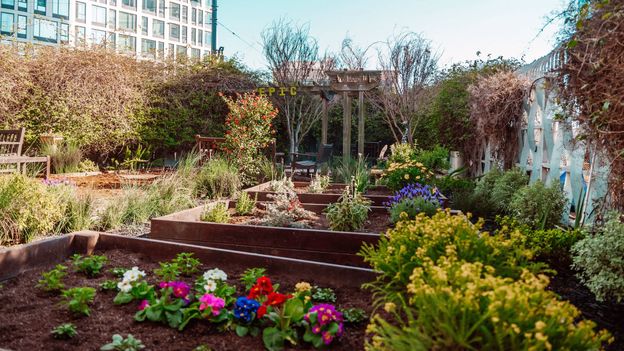Why it's time to talk about poo am sitting on a bio-toilet in Finca Gaia, an organic farm nestled in the midst of the tropical forest of Puerto ...
Published on by Water Network Research, Official research team of The Water Network

am sitting on a bio-toilet in Finca Gaia, an organic farm nestled in the midst of the tropical forest of Puerto Rico.
To my left, through the loose bamboo sticks of my stall, I can see lush avocado trees and tall plantains. Above me, the birds are chirping. Underneath me, unlike most toilets I use, there are no pipes and no maze of underground sewers.
With a smooth seat, soft toilet paper and the air smelling of blooming tulip trees, this set-up isn't unlike my own New York City bathroom on the sensory level. But its inner workings are completely different from the typical Western loo. When I'm done, there's no lever to pull. Instead, I open a box full of woodchips, dig in with a scoop and sprinkle them over what I left inside the big bucket tucked underneath the seat.
Manuel Perez, whose family owns the farm, built this bio-toilet for two reasons. Firstly, running pipes underneath this area would destroy a chunk of the jungle – Finca Gaia spans over about 35 acres (14 hectares) of natural forest, far away from municipal sewage lines.
We humans have a complete misunderstanding of human waste – Manuel Perez
Secondly, Perez firmly believes that what we view as human waste is a perfect product to nourish his plants and should be returned to the land. Once the bucket fills up, he adds its contents to a composting pit together with dead leaves and other refuse, all of which will eventually become rich and fertile soil.
"We humans have a complete misunderstanding of human waste," he says. It's a great fertiliser, full of nutrients. "So why waste it, when I can use it to grow my fruit trees?"
A faraway rainforest ranch seems a fitting place to compost poo, but these excrement-recycling ideas stretch far beyond. From farms to off-the-grid communities and from small eco-villages to big cities, there is a growing movement to put the metabolic output – more commonly referred to as excrement – of our bodies to good use, rather than simply trying our best to destroy it.
There are several reasons for that. Our poo is indeed a potent, nutrient-rich fertiliser which can help plants thrive. Composting rather than flushing it also brings down water use – a smart move in the era of climate change and water shortages. Applying it to land also reduces the need for synthetic fertilisers, which can wash away from fields into rivers and lakes and which require fossil fuels to make. (The Haber-Bosch process to synthesise the nitrogen-rich fertiliser ammonia requires temperatures of 400-650C (752-1,202F) and extremely high pressure, which can only be reached with the use of fossil fuels. The process leads to around 1.8% of global CO2 emissions.)
Attached link
https://www.bbc.com/future/article/20220830-the-new-science-of-recycling-human-poo?ocid=global_future_rssTaxonomy
- Composting Toilet